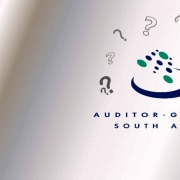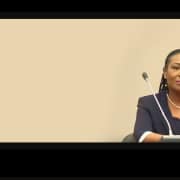|
Getting your Trinity Audio player ready...
|
Corruption Watch (CW) has written to the parliamentary Ad Hoc Committee on the Appointment of the Auditor-General (AG) with its views, plans and recommendations around the appointment of the next auditor-general. The term of the incumbent AG Kimi Makwetu, who has served with distinction, comes to an end on 30 November 2020.
The organisation expressed its intention of conducting an awareness and public participation campaign around the proposed parliamentary appointment process.
Our submission to the committee focused on three main aspects – transparency, public participation, and objective assessments of the candidates. These are the same principles that we have urged Parliament to uphold in previous appointment processes, including the public protector in 2016 and the national police commissioner in 2017, and deputy public protector in 2019.
Based on its several years of advocacy in the appointment of leaders to institutions supporting democracy, CW recommended that the committee publish the CVs of ALL candidates who applied for the position of AG on Parliament’s website. We also requested that information relating to candidates which is pertinent to the appointment and in the public interest, be made available – after the removal of contact details and sensitive information.
In terms of public participation, CW recommended that the committee allow a sufficient period of time, no less than seven days, for the public to comment and provide objections to candidates that have applied for the position of AG. The same opportunity for comment should be allowed for the shortlisted candidates.
Finally, CW recommended that the committee develop further shortlisting guidelines that will ensure that only the strongest candidates are identified for the interviewing process. The organisation suggested that candidate be classified into groups based on their eligibility or ineligibility for the post.
During the shortlist phase, CW recommended that the committee develop a questionnaire for candidates which will further assess their skills, expertise, knowledge and ethics, which will allow for an objective and standardised comparison of candidates.
The organisation also requested that the committee develop a scorecard, a tool that was used in 2013 with the previous appointment of the previous AG. CW recommended that a similar scorecard, which weights the importance of technical skills, leadership, and behaviour, is developed and utilised when deliberating on candidates.
Download and read our full submission.
Download and read our AG public education material, which explains the process of selection and expands on the scorecard mentioned above.







